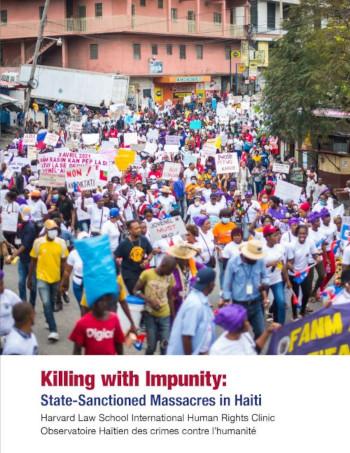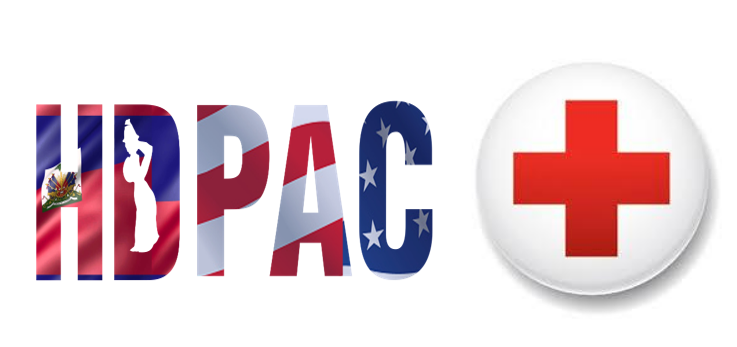May 8, 2021
TRUENEWSREPORT
BY: NATHANIEL BALLANTYNE
TRUENEWSBLOG – An April report from the International Human Rights Clinic at Harvard Law School said the Haitian government led by President Jovenel Moïse is complicit in crimes against humanity, for its roles in recent gang attacks.
“The scale, pattern and intensity of violence in these attacks indicate that they are not isolated or random,” said Joey Bui, a co-author of the Harvard report during a May 3 virtual conference. Bui joined human rights expertsand activists in the conference, to discuss the Harvard report and its consequences.
Harvard’s report, “Killing with Impunity: State-Sanctioned Massacres in Haiti,” largely used existing human rights reports to build a legal case for crimes against humanity. It analyzed three attacks that occurred in La Saline, Bel Air and Cité Soleil and left at least 240 civilians dead between 2018 and 2020. All three meet the criteria for crimes against humanity laid out in the Rome Statute of the International Criminal Court, the report states, because they were directed against civilians, were systematic and advanced the objectives of the Haitian state.
Jimmy “Barbecue” Cherizier, described in the report as a gang leader, is implicated as a key figure in each attack. Citing earlier reports from human rights groups, the Harvard researchers said that officials in the Moïse administration met with Cherizier to plan the attacks in La Saline and Bel-Air, which occurred in 2018 and 2019, respectively.
In the 2020 Cité Soleil attack, an unidentified government official allegedly paid an anti-government gang leader to switch sides, prompting the attacks there by Cherizier and his allies.
Each neighborhood mentioned in the report is considered by the United Nations to be a stronghold of opposition support, particularly the Fanmi Lavalas political party.
Failures of the state
Haiti’s police force (PNH) failed to protect civilians in each instance and made weapons available to gang leaders, the report also found. In the case of La Saline in particular, police never intervened despite having several outposts within a kilometer of the incident.
“The La Saline police station reportedly informed the Departmental West Directorate of the attack as soon as it began, and by 5pm, at least five PNH units were on notice that the attack was taking place,” the report states. “Citing inadequate resources, no part of PNH made an attempt to intervene.”
Three former Moise administration officials were named in the report for collaborating with Cherizier: Pierre Richard Duplan, a former Moïse delegate for the West Department; Fednel Monchery, former director of the Interior Ministry; and Leon Ronsard Saint-Cyr, former secretary of state for public security.
None of the named individuals have been prosecuted. The Haitian human rights group RNDDH ‒ which was cited heavily in Harvard’s report along with the UN ‒ reported that Saint-Cyr denies involvement in the Bel-Air massacre.
Cherizier himself has denied playing a role in gang massacres, the Associated Press has reported, and characterizes himself as a neighborhood leader with no allegiance to the government or opposition.
Recommended actions
In its recommendation section, the Harvard report’s authors urged both the U.S. and the UN to investigate and prosecute alleged perpetrators of human rights abuses. It also urged the U.S., which has already sanctioned Duplan and Monchery, not to empower Moise by supporting the elections process the president has outlined this year.
Harvard researchers also advised the Organization of American States to work with the Haitian government to outline a plan for addressing the crimes.
“The Haitian government has a duty under international law to investigate perpetrators of these crimes,” said Bui, the report’s co-author.






